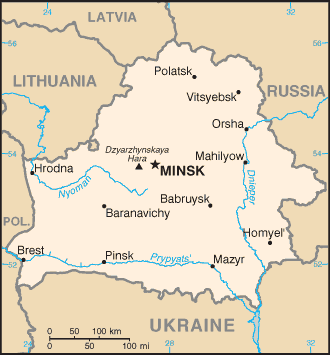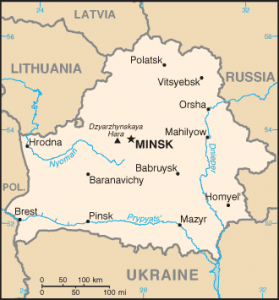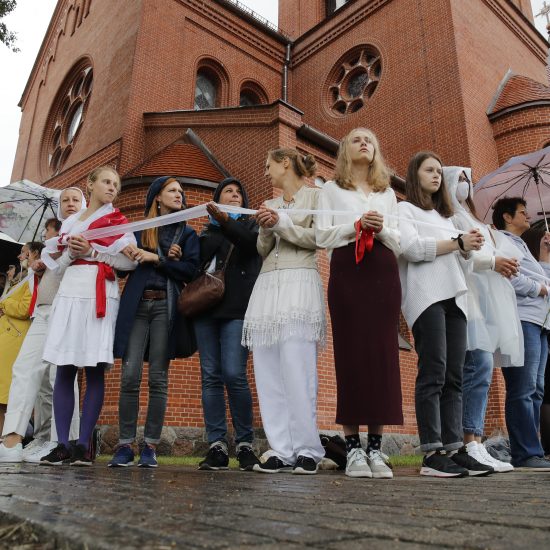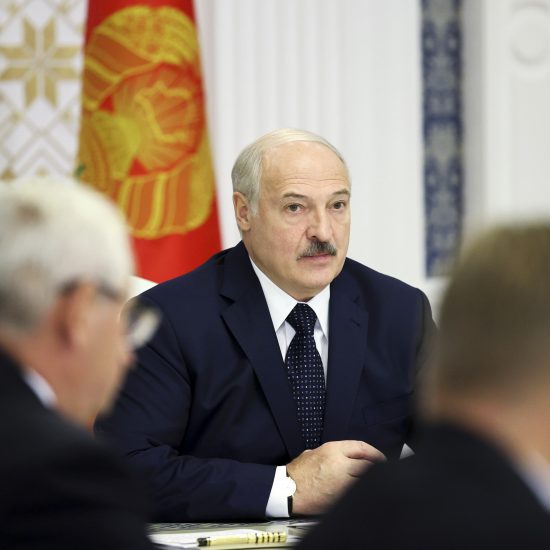
My introduction to the people of Belarus came through First Baptist Church in Farmington, Missouri, becoming a linkup church with a local church in Belarus. This came as the result of a partnership relationship between the Missouri Baptist Convention and the Union of Evangelical Christian Baptists in the Republic of Belarus. Through these initial church partnerships, some of those relationships continue today both between convention leaders, churches, and individuals who eventually traveled to Belarus.

John Jackson
On my first trip to Belarus with the Missouri Music Men we were to share a musical witness with individual churches in the country. We quickly experienced the restrictive culture of Belarus when we learned we were being followed by the KGB on our three-hour bus ride. The service also had to be cut short because we were required to be back to Minsk before a certain time. This was the first church in which we sang, and happened to be FBC Farmington’s linkup church in Ushchachi.
The warmth and the acceptance of the people there brought us to tears. I have never recovered from that encounter — nor do I want to.
As one who traveled early on in this convention initiative, I came to know more and more about the people and the churches. The result of this process has been an ongoing and growing friendship with a variety of people there, including Union and seminary leadership, and local pastors and leaders. Some of these friendships have become lifelong and deeply meaningful to me.
It has been my privilege and joy to be involved in the ongoing process of helping to develop emerging leaders through the work of Future Leadership Foundation to take groups and individuals on short term mission trips, teach in their seminary in Minsk, and serve as an encourager to the Union, seminary, churches, and individuals.
Through over 20 years of kingdom work in Belarus I have taken part in training events of many kinds for the seminary and local church leadership, and have assisted informational musical tours to help communicate ministry opportunities in the Union, helped provide strategic planning and building infrastructure for the seminary, and assisted with music evangelism events. All of this has been in response to the expressed needs of the leadership and people in the local churches.
 Baptist churches began in Belarus shortly after World War I when refugees and military captives became believers and returned to build churches, eventually establishing a union of churches. Afterwards, as the USSR came to power, Christians of all denominations were persecuted and designated as “enemies of the nation.” People were arrested, killed, or banished and the Union closed in 1935. Churches had to be registered and congregations were not allowed to construct church buildings. In World War II, when the Western part of Belarus came under the Polish control, churches enjoyed some limited freedom.
Baptist churches began in Belarus shortly after World War I when refugees and military captives became believers and returned to build churches, eventually establishing a union of churches. Afterwards, as the USSR came to power, Christians of all denominations were persecuted and designated as “enemies of the nation.” People were arrested, killed, or banished and the Union closed in 1935. Churches had to be registered and congregations were not allowed to construct church buildings. In World War II, when the Western part of Belarus came under the Polish control, churches enjoyed some limited freedom.
When the USSR fell in 1991, Baptists saw opportunities to worship in public places, publish Bibles, songs, and Christian literature, register churches and missions, and purchase land and start a seminary. Since Belarus’s current president consolidated his power, it’s become very difficult to buy or build church property. Most missionaries have had to leave, and government control has become tighter.
Under the USSR, all churches had to register with the state, and no new church buildings were allowed to be built. It was nearly impossible for evangelicals to get government jobs, which remains true today. Evangelicals were treated as separate from the culture. Baptists were and are looked on by many as a cult. An atmosphere of distrust of evangelicals has prevailed to this day. Tight control of the general population has also affected the churches in their day-to-day lives, as well as the ministries of the local churches.
Today, evangelical churches continue to be in the minority and suffer constant hostile pressure in a country where the dominant church group politically and culturally is Orthodox. Worship and witnessing in public places is forbidden and confined to church buildings. Citizens from other countries are required to have an invitation from a government-recognized entity in Belarus and approved by the government (though visa requirements have been eased significantly in recent days).
Although the USSR as a government is no longer, much of the Soviet mindset and infrastructure exits in Belarusian society. Yet, in all of these “restrictions,” the evangelical church in Belarus still thrives. The people of Belarus are vibrant, resourceful, and creative in expressing their faith while enduring economic and social challenges that have been a part of their daily life at the hand of their president who has been in power since 1994.
In light of the recent world pandemic with COVID- 19 President Lukashenco has decided to ignore the presence of the virus and not give the people the needed protection, information, and resources to battle the spread of the virus. Many churches have taken upon themselves to having virtual services, and a significant number of believers and their church leadership have contracted the virus. There is great concern among the church members for themselves and their family members as the government has basically ignored the situation.
This, in combination with voter suppression and voter fraud, has caused a historical reaction from the people of peaceful public demonstrations and unprecedented voter turnout for the 2020 presidential election, the result of which is currently in dispute and the opposition candidate remains in exile.
John Jackson serves the Future Leadership Foundation as field service director for Baltic States.



